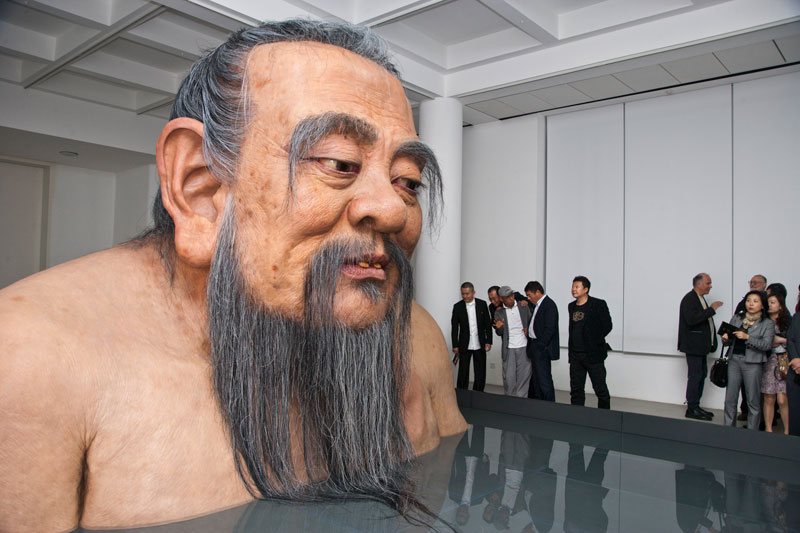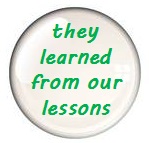I've been thinking recently about the role of sponsorship in enabling knowledge management, and it took me back to some Change Management principles which I learned from ChangeFirst, when I was responsible for Change Management as well as Knowledge Management at Centrica.The ChangeFirst model was based on Darryl Connor's "Managing at the speed of change", but also had much in common with the work of John Kotter. Both excellent reads with similar roots.
Depending on your KM strategy, sponsorship is always important and often absolutely critical to the success of a knowledge change programme - and let's face it, most of our work as practitioners is all about creating change and making it stick. So here's what I learned from my various Change Management gurus about the ten characteristics of effective sponsors.
Think about the leader who sponsors your KM activities as you read then through - or use it as a checklist to help you select the ideal candidate, if you're still looking...
1. Dissatisfaction. You want your Sponsor to be agitated about the current state of knowledge sharing in your organisation. They need to be frustrated at the loss of value, the inefficiency, the corporate stupidity, the missed innovations and the embarrassment of re-invention or repetition. A sponsor who thinks "everything is generally OK, and this KM stuff - well, it's just the icing on the cake!" is going to struggle to defend or promote your work with any authenticity. If they're not already sufficiently fired up, then you might want to find some provocative horror stories to spark things along.
2. Making resources available. It's an obvious one - but there's little point in firing up a sponsor who lacks the wherewithal to help you take action. If they don't have the budget or resource available themselves, can they help you through their contacts and relationships?
3. Understand the impact on people. Particularly true of Knowledge Management sponsors, because KM is fundamentally a people-based approach. How would you rate your sponsor's emotional intelligence? You will need to be able to engage them in discussions about the culture of the organisation and the behaviours of leaders. If that's an uncomfortable area for them, then keep looking!
4. Public Support. Bit of a no-brainer, but naturally you will want a sponsor who is willing and able to speak on behalf of your 'programme' at every opportunity. You may well need to equip them with an 'elevator speech' and some compelling success stories - and remind them of their dissatisfaction.
5. Private Support. Ah yes. The authenticity test. Will your sponsor speak with the same level of passion and heartfelt credibility in a private conversation with their peers - or is it just a mask they wear when they're wheeled out to make positive speeches. You need a believer!
6. Good Networkers. Perhaps this should be at the top. Your sponsor need to be adept at spanning boundaries, spotting synergies and sneaking around the back door of silos. Their network needs to become your network.
7. Tracking performance. This is one of the acid tests of interest and commitment. Is sponsorship of your activity something which is on their agenda, or are you just a medal that they wear to special occasions? Agree what good looks like, agree the immediate steps and agree on the indicators and measures you need to focus on. Get that meeting in their diary at least quarterly. If they're dashboard-oriented, then build one for them, but remember Einstein's classic quote: "Not everything that can be counted counts, and not everything that counts can be counted."
8. Reinforcement when needed. Sometimes you might need to 'send for reinforcements', so select a sponsor who is willing to challenge, knock heads together, unblock the corporate drains and generally provide you with air cover when you want it. You need a fighter as well as a lover.
9. Focus on the future. Ensure that your sponsor gets the big picture - and can communicate it compellingly. What is their personal vision for the organisation five years from now? Does it match yours? Does it line up with your KM strategy and plan. If they have a tendency to get lost in the details of performance targets, then make sure that some of your measures are long term. You don't really want them fussing over how many documents were uploaded into a SharePoint folder this week when there's a demographic knowledge-leaving-the-organisation bubble which threatens to burst 3 years from now. Help them to lift their heads up - and ask them to lift yours too.
10. Behavioural modelling. Your sponsor needs to walk the walk, as well as talk the talk. When you champion knowledge sharing, you lay yourself open to accusations of hypocrisy much more than if you were the sponsor of systems implementation programme. It's behavioural. It's relational. And people notice. You might want to equip them with some simple questions to ask others which help them nail their colours to the mast. Syngenta are good at this, and put a number of "leading questions" on a pocket card to help all of their senior champions to verbalise their commitment:
"Who could you share this with?" "Who did you learn from?" "Who might have done this before?" "Who could you ask for help and advice?"
University College Hospital's After Action Review behavioural programme has taken training to the very top of the hospital tree to ensure that anyone is equipped (and expected) to facilitate an AAR. Would your Sponsor know how to lead a simple period of team reflection? It would certainly increase their impact if you could help them to become the "knowledge conscience" in the boardroom...
So how does your sponsor measure up?
If you can nod gratefully to most of the above as you read it, then count your blessings….














